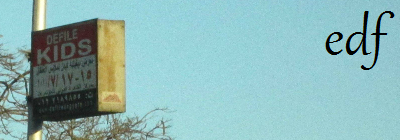For a country with a much smaller military and no nuclear weapons, Australia is suddenly hinting an awful lot about a war with China.
On April 25, the symbolic date of Anzac Day, when Australia honors its war dead, newly appointed Defense Minister Peter Dutton said a conflict with China over Taiwan shouldn't "be discounted," adding that Australians needed to be "realistic" about tensions around the region.
In another Anzac Day message, the top official at Australia's powerful Home Affairs department, Mike Pezzullo, told his staff "free nations" were hearing the "drums of war" beating again.
A few days later, Prime Minister Scott Morrison announced $580 million in military upgrades. One week on, several newspapers published a confidential briefing by Australia's Maj. Gen. Adam Findlay to special forces soldiers, in which he said conflict with China was a "high likelihood."
The idea of Australia fighting a war against China on its own is ridiculous. Last year, Australia's military spending was about $27 billion, according to the Stockholm International Peace Research Institute. China's was estimated to be 10 times higher, for the same period, at about $252 billion, the second highest in the world.
Plus, China is a nuclear power. Australia is not.
Relations between Canberra and Beijing have been in a deep freeze for almost a year, since Morrison and his government infuriated their Chinese counterparts by publicly calling for an investigation into the origins of the Covid-19 pandemic. Since then, Australian exports to China -- including coal, wheat and wine -- have faced crippling obstacles.
The Australian government has moved to confront Beijing over allegations of human rights abuses in Xinjiang and Hong Kong, and Chinese Foreign Ministry spokesman Zhao Lijian has joined a chorus of state-run media highlighting Australia's poor human rights record on refugees and Indigenous Australians.
But much of the war-like rhetoric from Australia is actually driven by domestic politics, said Yun Jiang, managing editor at the Australian National University's Center on China in the World. The Morrison government is under pressure over allegations it has mishandled its Covid-19 vaccine rollout, and could be looking to shift the focus.
"Focusing on an external enemy has usually been quite effective in uniting public sentiment and rallying around the government," she said. "I think it's irresponsible for the government to talk it up like that. War is very serious business."
The Australian government's words, however, may reflect real concerns about the possibility of a Chinese invasion of Taiwan -- a conflict that could ultimately involve the entire Asia region and even the US. But that terrifying prospect, said Yun, is likely why other US allies in closer proximity to Beijing's sphere of influence, such as South Korea and Japan, aren't echoing Canberra's aggressive language.

Why are Australian officials hinting at war with China?
The Australian government's words may reflect real concerns about the possibility of a Chinese invasion of Taiwan -- a conflict that could ultimately involve the entire Asia region and even the US.

